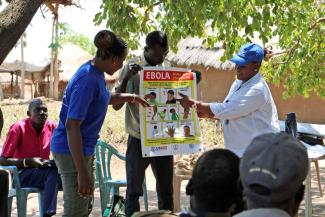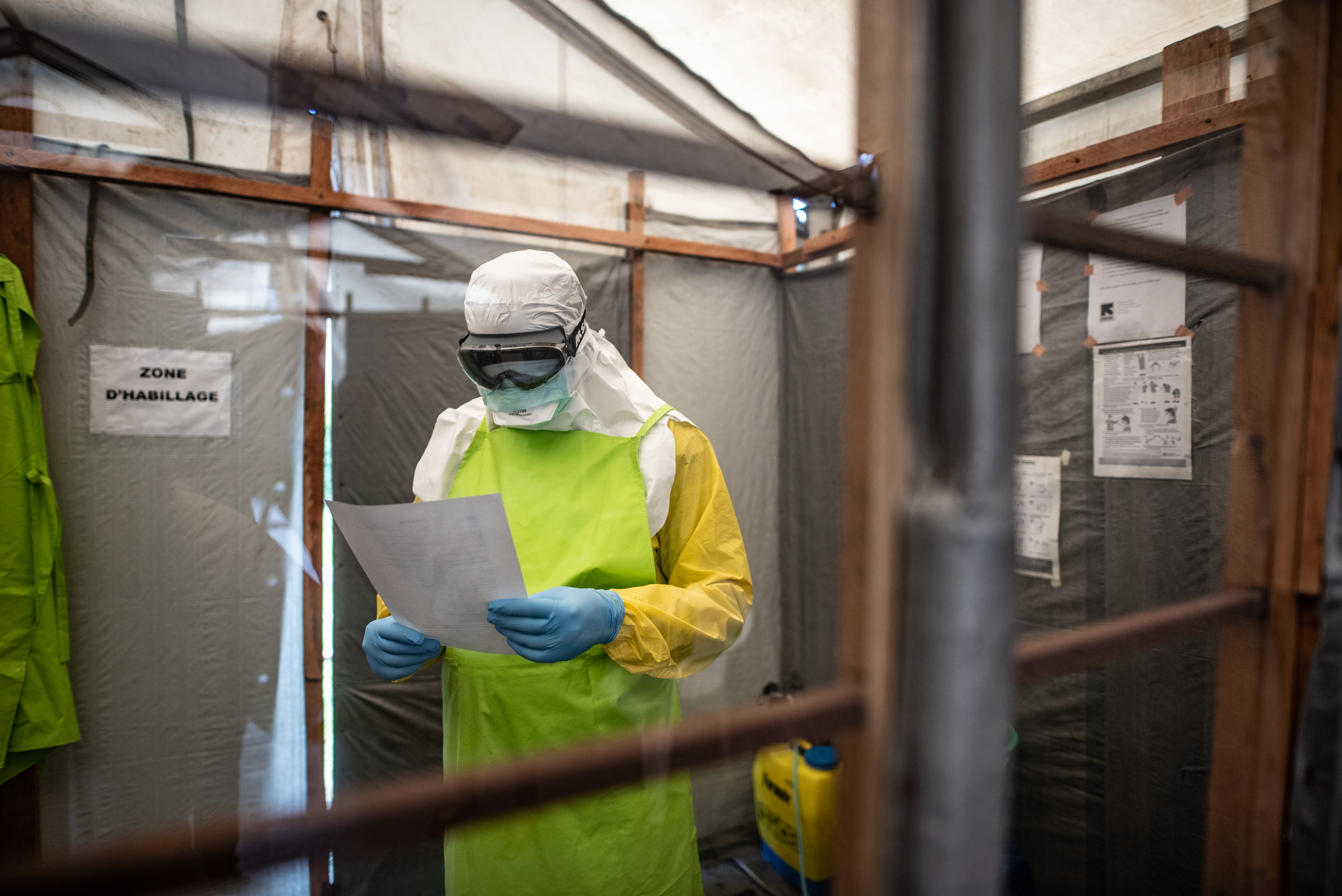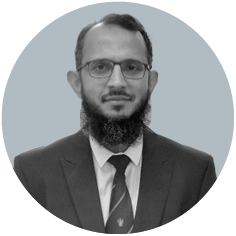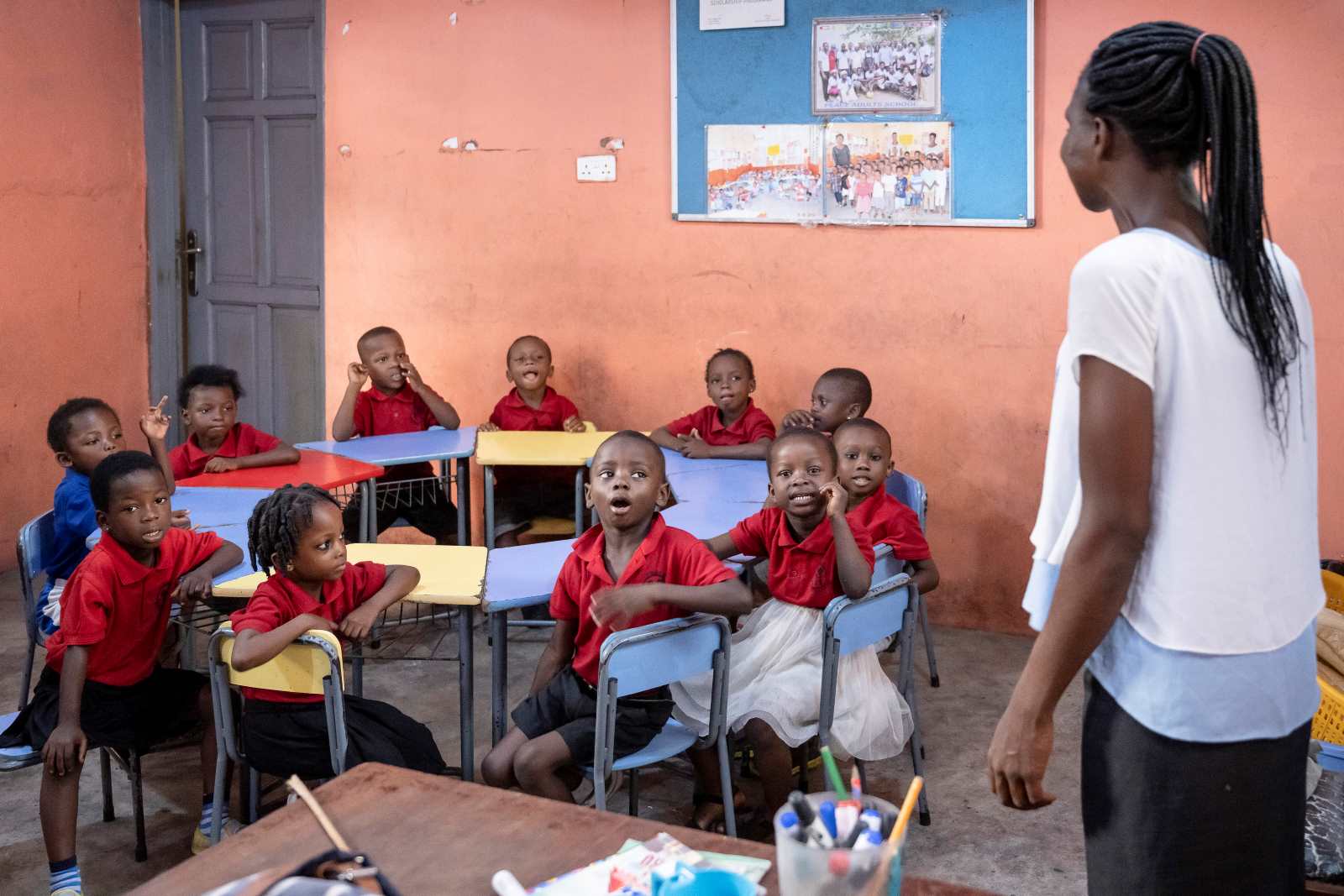Health
Preparing for Ebola

No cases of Ebola have been detected in South Sudan since the country gained independence from Sudan in 2011. However, the country borders Uganda and the Democratic Republic of the Congo (DRC) – two countries where the disease broke out in 2022. Ebola can be transmitted from animals to humans. The likelihood of infection therefore grows with increased contact between humans and wild animals in risk areas, which is favoured by deforestation, hunting and mining, among other things.
The virus could enter South Sudan in various ways, for example via international airports or across the green border. Open borders, the country’s close trade contacts with its neighbours and certain cultural traditions could facilitate the spread of the virus. At the same time, South Sudan’s health infrastructure has deficits. For example, there is a lack of monitoring and laboratory capacity to analyse samples.
In order to better arm South Sudan against Ebola, the country’s Ministry of Health is cooperating with the UN and humanitarian organisations. Among other things, it has
- strengthened the Ebola surveillance system,
- prepared health facilities for quarantine,
- trained health workers,
- organised public awareness programmes and
- developed guidelines for dealing with Ebola.
Medical staff play a key role. They are particularly at risk during Ebola outbreaks due to their contact with infected people and could inadvertently spread the disease. Among other things, staff should be able to recognise the symptoms of sick people so that they can quickly refer patients to the right places.
Survey Among Health staff
However, there is a lack of information on the extent to which healthcare professionals in South Sudan are prepared for a possible Ebola outbreak. As a PhD student at Yesbud University India, I therefore conducted a survey among medical staff in Yei River County, at the border triangle of South Sudan, DRC and Uganda, from August to October 2023. The aim was to evaluate what staff know about Ebola, what their attitudes are and what preventive practises are already in place.
The 195 participants completed a questionnaire for this purpose. The results showed that, on the one hand, they were quite knowledgeable about the symptoms of Ebola. On the other hand, their knowledge of transmission and prevention was incomplete – for example with regard to the fact that the virus can also be transmitted via breast milk. Their handling of patients suspected of having Ebola also needs to be improved. In the survey, participants with a high level of education demonstrated more knowledge about Ebola, how to deal with infected people and how the disease can be contained than those with a lower level of education.
Continuous training
Therefore, existing training courses for healthcare professionals must only be the beginning. The government should urgently create a continuous training programme. The different levels of education and experience of those involved must be taken into account. In particular, healthcare staff should be better informed about potential sources of infection.
In addition to the study in Yei River County, similar research should be carried out with healthcare workers across various regions of South Sudan to establish a more robust database. Knowledge and attitudes towards Ebola among the general population should be surveyed too. Other measures in the fight against Ebola include:
- better equipping the healthcare system, for example with diagnostic tools to enable comprehensive monitoring,
- utilising digital systems to ensure optimal medical care, for example as part of vaccination campaigns,
- involving local communities, for example through local authorities, and
- cooperating and sharing information across national borders.
“Good health and well-being” is the 3rd UN Sustainable Development Goal (SDG). In order to achieve this goal for South Sudan and protect its population, the government, the UN and other organisations must enhance their efforts. A deadly disease like Ebola must not be given a chance in South Sudan.
Simaya Ladu James is a project manager at the humanitarian aid organisation Malteser International in South Sudan.
simayaladu@gmail.com
A deadly virus
Ebola is a highly contagious viral disease that is fatal to humans. It occurs primarily in sub-Saharan Africa. According to the WHO, case fatality rates have varied between 25-90 % in past outbreaks, depending on the circumstances and countermeasures. Symptoms include fever, fatigue, muscle pain, sore throat and headache. These can be followed by vomiting, diarrhoea, rash and internal and external bleeding. Even after recovery, symptoms can persist for years.
Early treatment increases a person’s chances of surviving Ebola. In general, the intake of fluids and body salts, orally or by infusion, is recommended. Authorised vaccines against the Zaire type of Ebola are available. However, the outbreak in Uganda in 2022 was caused by the Sudan virus, for which no special vaccines or medication are available yet.
Prevention plays a crucial role in the fight against Ebola. This includes, in particular, avoiding contact with body fluids of people who have, or may have, Ebola, but also with objects that could be infected, such as the clothing of sick people or medical equipment. As the disease is transmitted from animals to humans, particular care must be taken when handling wildlife animals such as bats, forest antelopes and chimpanzees. SLJ













